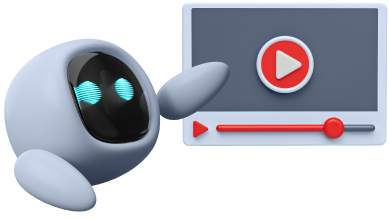Becoming a Python developer is easier than you think. In today's digital age, there are countless resources that allow you to learn Python from the comfort of your own home. With just a computer and an internet connection, you can step into the world of programming.
Why choose Python?
-
Easy to learn: Python's simple syntax makes it easy for beginners to write code quickly.
-
Versatile: It can be used for a wide range of applications, from web development and data analysis to game creation.
-
Large community: Python has a large and active community, making it easy to find answers to your questions.
-
In-demand: Python skills are highly sought after in today's job market.
Recommended Python Learning Plan for Beginners
-
Choose a learning resource:
-
Online courses: Platforms like our IT STEP Academy offer Python courses for beginners that teach you how to read and write Python code to create websites and applications within 8 months. Live online classes, taught by experts, can be accessed from anywhere.
-
YouTube: Many YouTube channels offer free Python tutorials, such as Corey Schafer and Sentdex.
-
Books: There are a variety of Python books available for different levels.
-
Documentation: The official Python documentation (docs.python.org) is a comprehensive resource.
-
-
Start with the basics:
-
Syntax: Learn basic syntax such as variables, data types, operators, control structures (if, else, for, while), and functions.
-
Data structures: Learn about lists, tuples, dictionaries, and sets.
-
Modules and packages: Learn how to import and use various modules and packages.
-
-
Practice:
-
Write your own code: Try solving small problems like calculating areas or generating random numbers.
-
Build projects: Create small projects such as simple games or personal websites to practice the skills you've learned.
-
Contribute to open-source projects: Help develop open-source projects to learn from other developers.
-
-
Learn libraries and frameworks:
-
NumPy: For numerical computations
-
Pandas: For data analysis
-
Matplotlib: For creating graphs
-
Django or Flask: For web application development
-
-
Build your network:
-
Join communities: Join Python groups or forums to exchange knowledge.
-
Attend events: Attend seminars or workshops on Python.
-
Becoming a Python developer is not difficult. With dedication and practice, along with the many available resources and supportive community, you can enter the world of programming and create amazing things.



